Directory
- Share
Naina Agrawal-Hardin
- Scholar
- United States, Canada
- 2025 MPhil Anthropocene Studies
- King's College
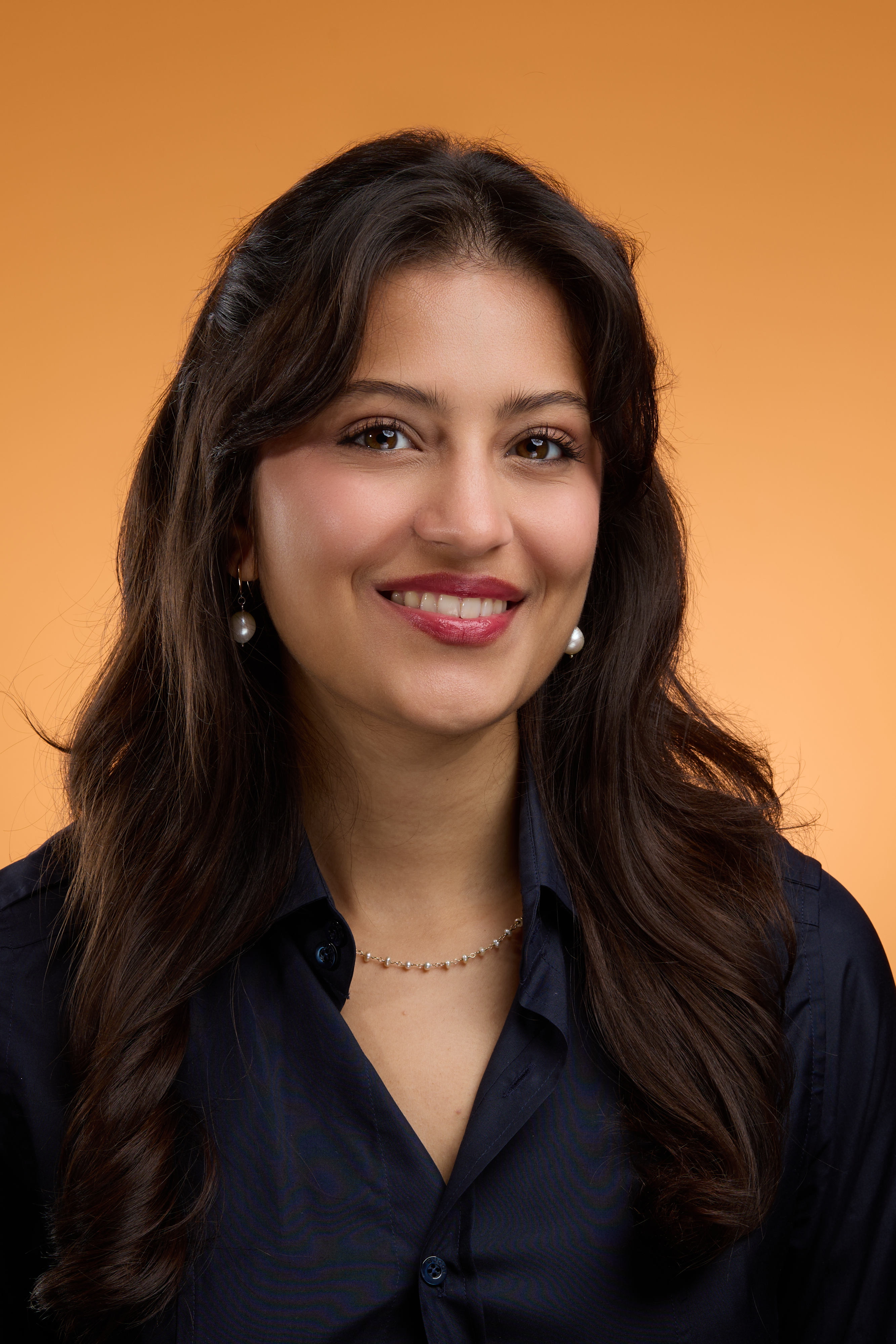
Naina Agrawal-Hardin
- Scholar
- United States, Canada
- 2025 MPhil Anthropocene Studies
- King's College
I grew up in Michigan, but my family’s roots are in East Tennessee and Northern Bihar. Although Appalachia and Mithila are a world apart, witnessing climate disasters in both regions has shown me that poor and rural communities across the globe are not only least responsible for climate change, but also most vulnerable to its impacts. My MPhil in Anthropocene Studies at Cambridge will trace the emergence of theories about spatially and socially differentiated climate risks. Drawing on my undergraduate training in History and Energy Studies at Yale University, I will contribute to a growing body of scholarship that documents the history of climate change projections. In particular, I will analyze how those projections were received by a wide range of actors, including governments, fossil fuel companies, and the global public. My research will inform the emerging field of transnational climate litigation and sharpen debates about the distribution of responsibility for today’s climate crisis. I am excited to learn alongside fellow Gates-Cambridge scholars who share my passion for tackling global problems and improving the lives of the people most affected.
Previous Education
Yale University History
Sabrina Gabrielle Anjara
- Alumni
- Indonesia
- 2014 PhD Public Health and Primary Care
- Queens' College

Sabrina Gabrielle Anjara
- Alumni
- Indonesia
- 2014 PhD Public Health and Primary Care
- Queens' College
Sabrina is the first Gates Cambridge Scholar from Indonesia. Her PhD at Cambridge was a cluster randomised controlled trial of the implementation of mental health services in primary care clinics. She completed a Postdoctoral Research Fellowship at University College Dublin, studying how collective leadership in healthcare influences patient outcomes. She is now Research Principal at Accenture’s Human+AI Impact Initiative. Sabrina holds a BA in Psychology and Asian Studies from the University of Melbourne, and an MSc in Organisational Psychiatry and Psychology from King’s College London. Before Cambridge, Sabrina led a study on determinants of success in medical training at the National University of Singapore, using big data, and spent some years as a Psychologist at the Ministry of Social and Family Development, Singapore. She’s a World Economic Forum Global Shaper.
Chiara Avancini
- Alumni
- Italy
- 2014 PhD Psychology
- Newnham College

Chiara Avancini
- Alumni
- Italy
- 2014 PhD Psychology
- Newnham College
I was born and raised in a village among the beautiful Dolomiti Mountains near the city of Trento, but I studied at the University of Padova where I obtained a BA in Psychology and an MA in Clinical Psychology. During my studies, I developed an interest in difficulties experienced during schooling and in the electrophysiology of mathematical cognition. My PhD research at the Centre for Neuroscience in Education will be at the confluence of these two interests. I will study the characteristics of the physiological reactions of students experiencing high anxiety in relation to mathematics. In particular, I will focus on gender differences and I will assess whether biofeedback techniques can be used to overcome such a difficulty. At university I taught Italian to immigrants through charities, motivated by the firm belief that learning how to speak the local language is the first step that helps in the process of integration.
Links
https://sites.google.com/site/peelenlab
http://www.cne.psychol.cam.ac.uk
Matthew Cassels
- Alumni
- Canada
- 2014 PhD Psychiatry
- Gonville and Caius College

Matthew Cassels
- Alumni
- Canada
- 2014 PhD Psychiatry
- Gonville and Caius College
During my MPhil in Social and Developmental Psychology at Cambridge I studied the impact of the quality of children’s human and pet relationships on their social and emotional wellbeing. I took this research a step further in my PhD in Psychiatry by examining the extent to which self-harm behaviours among adolescents can be predicted by the security of their attachments to their parents. Self-harm typically originates in adolescence, is addictive, socially contagious, and tends to escalate over time. As such, early interventions are imperative in order to prevent experimentation from becoming habit, incident from becoming epidemic, and harm from becoming suicide. I hope that by uncovering some of the etiological pathways to these deleterious behaviours, my research will lead to the development of more efficacious treatments and better prognoses for patients.
Previous Education
Univeristy of Cambridge 2013
Queen's Univeristy 2008
Adriana Cherskov
- Alumni
- United States
- 2014 MPhil Medical Science
- Trinity College

Adriana Cherskov
- Alumni
- United States
- 2014 MPhil Medical Science
- Trinity College
I graduated from Princeton University with a B.A. in Molecular Biology and Certificates in Musical Performance and Neuroscience. Neuroscience captures my curiosity unlike anything else. My academic work, including my senior thesis research, and volunteer experiences in the clinic and beyond have motivated me to focus on developing a better understanding of the pathophysiology of autism spectrum disorders, and by extension elucidating possible molecular mechanisms which would lead to more effective treatment. At Cambridge, I look forward to pursuing an MPhil in Medical Science (Psychiatry) and investigating transcriptional and epigenetic regulation in the autistic brain in the research group of Professor Simon Baron-Cohen. Ultimately, I plan to pursue a career as a physician-scientist in order to develop more effective therapies for such complex neurodevelopmental disorders as autism.
Sook Chia
- Alumni
- Singapore
- 2004 PhD Education
- Homerton College
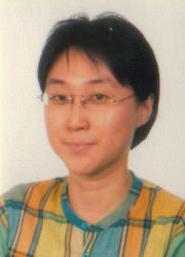
Sook Chia
- Alumni
- Singapore
- 2004 PhD Education
- Homerton College
I am very priviledged to be part of the Gates Cambridge Community. Being an educationist, I look forward to the exciting adventure ahead, to advance the cause of education and contribute to the society, in the spirit of a Gates Cambridge scholar.
Lindsay Chura
- Alumni
- United States
- 2008 PhD Psychiatry
- Trinity College
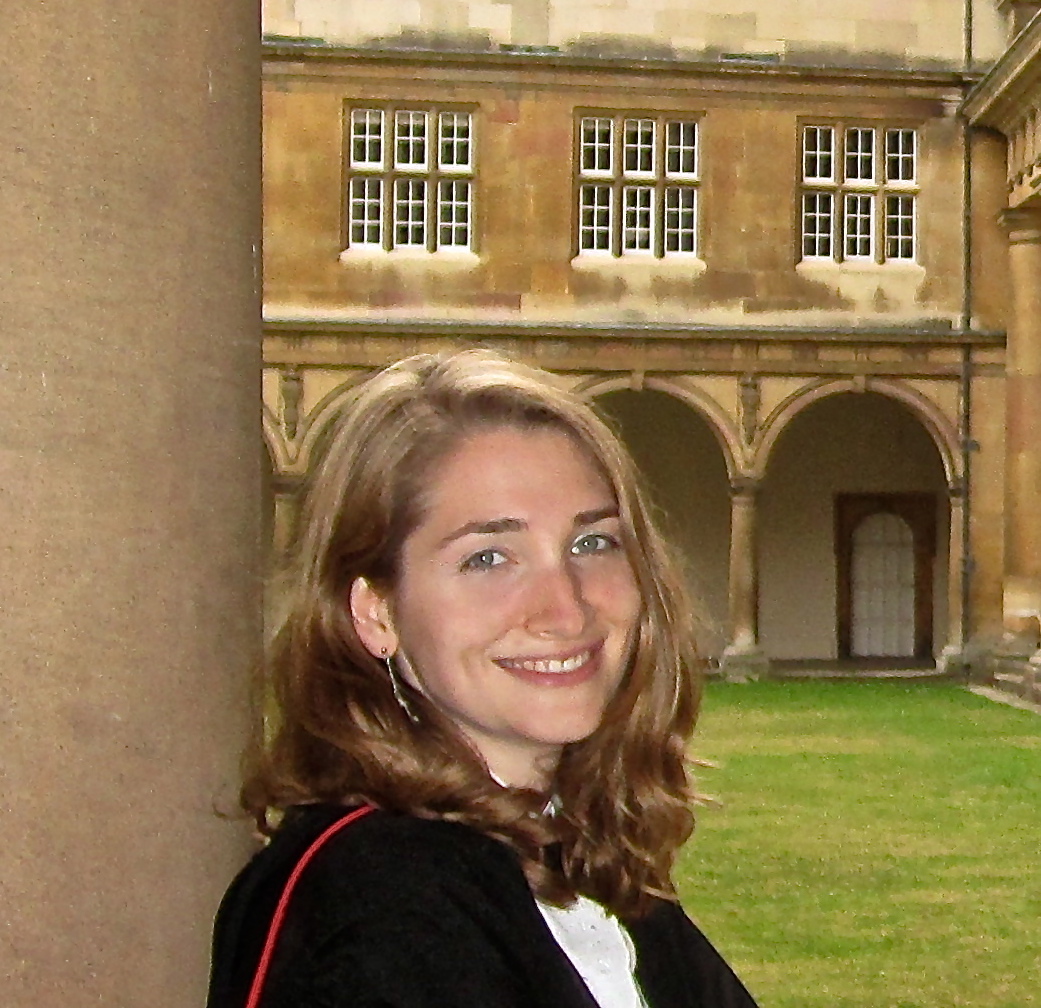
Lindsay Chura
- Alumni
- United States
- 2008 PhD Psychiatry
- Trinity College
Dr. Lindsay Chura is currently the Chief Scientific Officer for the Global Council on Brain Health, an AARP and Age UK collaborative, focused on providing clear and dependable recommendations for maintaining and improving brain health. Lindsay previously held the position as Senior Policy Advisor for Science and Innovation at the British Embassy in Washington where she advised the Ambassador on international health and science issues impacting the UK/US bilateral relationship in addition to leading science diplomacy delegations abroad. Lindsay received her doctorate in Psychiatry at Cambridge for her research that applied neuroimaging techniques to investigate brain structure and function in children with autism she worked with across England. As a Gates Cambridge Scholar, she was actively involved in the scholarship community and managed the Gates Distinguished Lecture Series for two years as an officer on the Scholars’ Council. Prior to studying in the UK, Lindsay was a Fulbright Scholar at a clinic in Australia specialising in reproductive medicine. An alumna of Mount Holyoke College, Lindsay has published across a range of scientific domains, and has previously written for US News & World Report as an American Association for the Advancement of Science (AAAS) Mass Media Fellow. She enjoys engaging with schools and the wider community through science outreach activities.
Richard Dear
- Alumni
- United Kingdom, Australia
- 2021 PhD Psychiatry
- Trinity Hall

Richard Dear
- Alumni
- United Kingdom, Australia
- 2021 PhD Psychiatry
- Trinity Hall
“Why do people suffer?” asked a 13-year-old boy with many passports, when he travelled and saw his privilege reflected in the eyes of the world. Born to two statistics professors he was curious about anything besides academia, and so left his Australian physics degree for the adventure of technology startups in China. He wandered to monasteries in Tibet, sat for ten days of silent meditation at the edge of a South African desert, and tried to appreciate all he was born with by working as a data scientist at Airbnb, in a gleaming office just around the corner from the tents of the homeless.
Depression clouded that young man's mind. Emerging on the other side thanks to care that so few can access, he wondered, “If even I, with all my comforts, feel such pain, perhaps Buddha was right that suffering begins in the mind?”
And so I left Silicon Valley for Cambridge to contribute what I can to depression research. Neuroscience is in a golden age, powered by technologies that link brain scans, genetics, and socioeconomics to drugs, therapy, and public policy. Yet we are challenged by the brain’s complex biology, inconsistent psychiatric diagnoses, archaic and unjust healthcare systems, and the dramatic increase in mental illness especially among youth. I am grateful for this chance to offer what I can to help others also find their way from suffering to happiness.
Previous Education
University of Cambridge Neuroscience 2021
National University of Singapore Physics 2013
Australian National University Physics 2013
Natalia Del Campo
- Alumni
- Spain
- 2006 PhD Psychiatry
- Clare College

Natalia Del Campo
- Alumni
- Spain
- 2006 PhD Psychiatry
- Clare College
Trained as a psychologist in Madrid (Spain) and as a neuroscientist in Utrecht (The Netherlands), I'm very interested in the interface between neuropsychology and fundamental neuroscience as a way to identify the neuro-biological mechanisms underlying psychopathology. For my PhD, I am combining various neuroimaging techniques with psychopharmacology, neuropsychological testing and genetic profiling on various psychiatric patient groups, such as attention deficit/hyperactivity disorder (ADHD).
Luisa Dell
- Scholar
- United States
- 2024 PhD Chemical Engineering
- Pembroke College
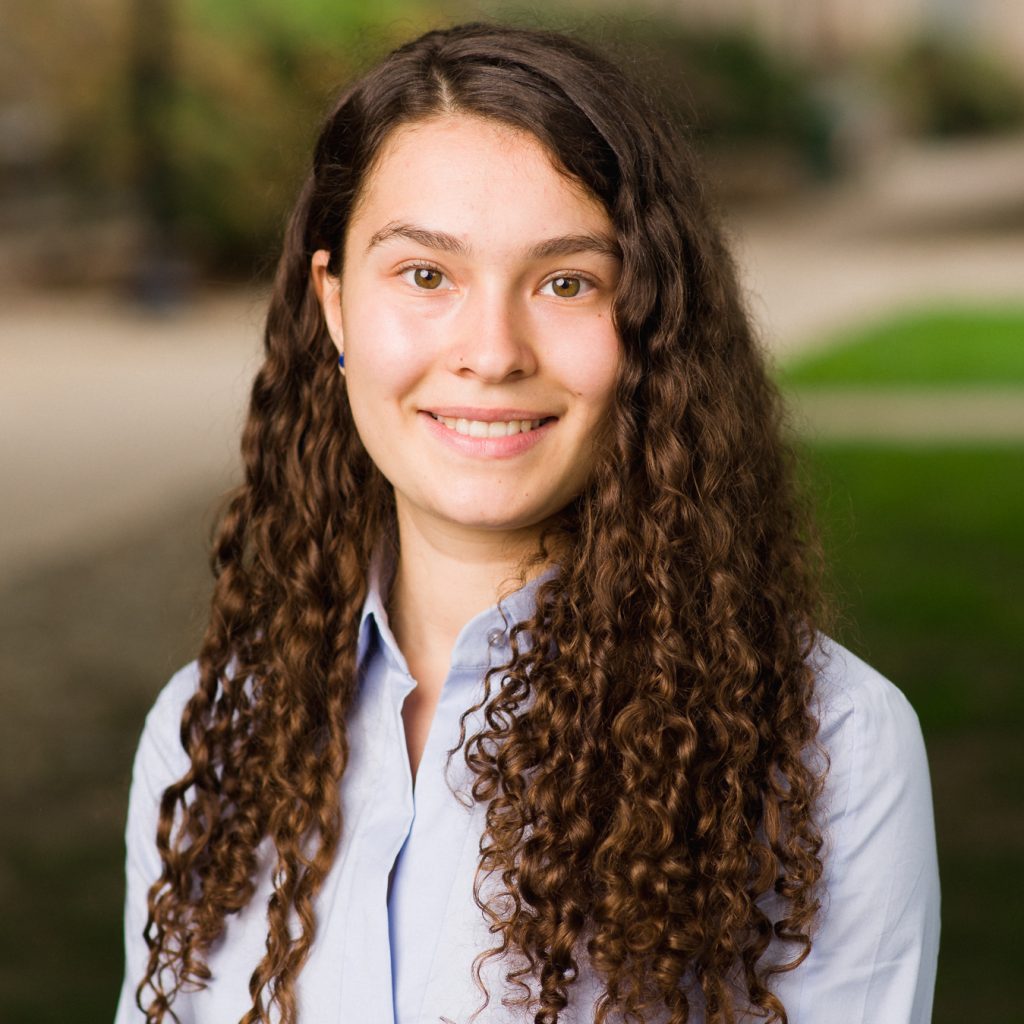
Luisa Dell
- Scholar
- United States
- 2024 PhD Chemical Engineering
- Pembroke College
Originally from Monterey, CA I completed my BS in Chemical Engineering at the University of California, Berkeley after transferring from Monterey Peninsula College. Throughout my educational career, I developed my passion for research in synthetic biology, mentorship, and outreach. At Cambridge, I hope to overcome contemporary uropathogenic Escherichia coli antibiotic resistance and other bacterial resistance towards UTIs through the discovery of novel alternatives to traditional beta-lactam antibiotics. After my PhD, I hope to continue research projects that will advance global health as well as increase diversity in STEM education.
Previous Education
University of California, Berkeley Chemical Engineering 2023
Monterey Peninsula College Chemical Engineering 2021
Lena Dorfschmidt
- Alumni
- Germany
- 2018 PhD Psychiatry
- Darwin College

Lena Dorfschmidt
- Alumni
- Germany
- 2018 PhD Psychiatry
- Darwin College
During my undergraduate studies in Cognitive Science at Osnabrück University in Germany I became interested in machine learning and graph theory. I joined professor Henrik Walter’s lab at Charité University in Berlin, Germany, and worked with Dr. Jonathan Clayden at the Developmental Imaging and Biophysics Unit at University College London, UK. I am fascinated by a graph-theoretical approach to the study of whole-brain network organization in health and disease. Psychiatric illnesses, like mood disorders, often impede with our ability to lead independent and self-determined lives. With my research, I aim to contribute to a better understanding of such illnesses in order to develop biomarkers that allow for the effective detection, prediction and discrimination of mood disorders. At Cambridge I will be doing a PhD in Psychiatry, studying trajectories of brain network development, adolescent depressive symptoms and mood disorder. I will combine multimodal MRI metrics of network organization with machine learning tools to identify network phenotypes that are most predictive of subclinical depressive symptoms and depressive disorder.
Previous Education
University of Osnabruck
Ethan Dutcher
- Alumni
- Australia
- 2018 PhD Psychology
- Pembroke College
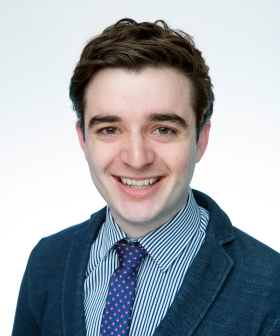
Ethan Dutcher
- Alumni
- Australia
- 2018 PhD Psychology
- Pembroke College
Early in my medical training, I was struck by the fact that across my lifetime we may finally come to know the mechanisms causing and perpetuating psychiatric disorders with some clarity, and that with this will come a profound shift in the way these disorders are viewed by the public and managed by medical professionals. I have found the lure of contributing to this transformation in some small way irresistible. At Cambridge, I will use diverse methods to study the long-term effects of early-life stress on behavior, the brain, and the immune system. With the help of the Gates Cambridge Scholarship, I am looking forward to a career in which I can help on a daily basis to translate the latest research findings directly into better psychiatric care, both for my patients and more broadly.
Previous Education
University of Adelaide
Sagnik Dutta
- Alumni
- India
- 2016 PhD Politics & International Stud
- Corpus Christi College
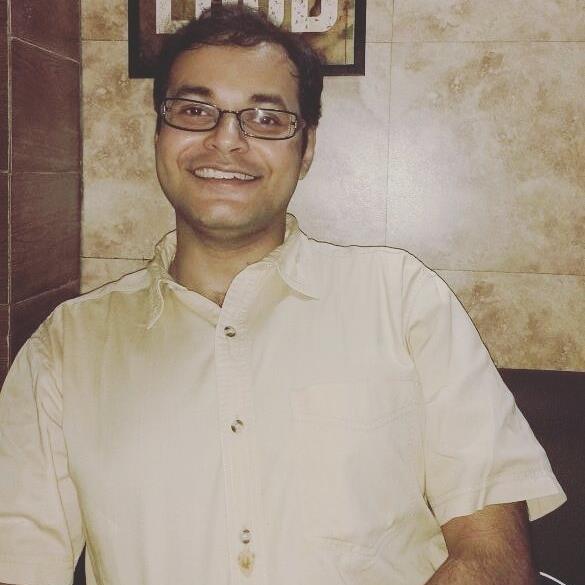
Sagnik Dutta
- Alumni
- India
- 2016 PhD Politics & International Stud
- Corpus Christi College
I am currently an Assistant Professor in Jindal Global Law School in India where I teach foundational courses in social sciences and more specialised courses in political science. I completed my doctoral studies in Politics and International Studies in 2020. I have published widely since then in various prominent peer-reviewed journals in the field of gender studies and socio-legal studies such as Feminist Theory, Law and Social Inquiry, and Ethnicities. My research builds upon research builds upon ethnographic fieldwork on working class Muslim women’s activism in contemporary India to deparochialise debates on minority rights, gender, and liberalism in political theory and international relations that are usually explored through the prism of liberal multiculturalism. I am committed to decolonising the disciplines of politics and international relations. Details of my publications can be found in my official website.
Previous Education
University of Calcutta
School of Oriental and African Studies
Ata Allah Elbizanti
- Scholar
- Libya
- 2024 PhD Physiology, Development and Neuroscience
- Gonville and Caius College

Ata Allah Elbizanti
- Scholar
- Libya
- 2024 PhD Physiology, Development and Neuroscience
- Gonville and Caius College
Growing up amidst the turmoil of Libya during the war, I used to observe how people reacted differently to the same environment; their mental health journeys diverging along unpredictable paths. I became mystified by the resilience and vulnerability of the human mind, and later earned a Psychology BA from the American University of Beirut as a MEPI-TL scholar.After pursuing a career in Psychosocial Support with the United Nations, I realised the roots of these issues delved far deeper than surface-level support could reach. I then earned an MSc in clinical Neuroscience from UCL as a Chevening scholar and worked as a research assistant at the University of Cambridge. My PhD utilises advanced In Vivo imaging and Optogenetic techniques to study specific neuronal circuit components in genetic mouse models of neurodevelopmental disorders and healthy mice during visually guided decision-making. My goal is to uncover what influences proficient and deficient sensory discrimination, fostering knowledge that destigmatises and guides tailored neuropsychiatric treatments, ultimately transforming patients' lives. Being a Gates scholar is both an honour and a responsibility, which I intend to uphold by bridging my research with activism.
Previous Education
University College London Clinical Neuroscience 2022
American University of Beirut Psychology 2020
Ian Hsu
- Alumni
- United States
- 2012 MPhil Social Anthropological Analysis
- King's College

Ian Hsu
- Alumni
- United States
- 2012 MPhil Social Anthropological Analysis
- King's College
I graduated with my MPhil in Social Anthropology from the University of Cambridge in 2013 and with my medical degree from the Johns Hopkins University School of Medicine. I completed residency training in Adult Psychiatry at Cambridge Health Alliance, and a fellowship in Consultation-Liaison Psychiatry at Columbia University Medical Center. I am interested social determinants of mental health and in improving psychiatric care for immigrants.
Previous Education
Johns Hopkins University 2014
University of Michigan Neuroscience 2009
Spatika Jayaram
- Scholar
- India
- 2023 PhD Physiology, Development and Neuroscience
- Magdalene College

Spatika Jayaram
- Scholar
- India
- 2023 PhD Physiology, Development and Neuroscience
- Magdalene College
There is as much poetry in understanding the brain, as there is science. I had the opportunity to pursue both these during my undergraduate degree at the Indian Institute of Science Education and Research, Mohali. After working on Schizophrenia at the National Institute of Mental Health and Neurosciences, I completed my final year thesis on memory formation at the Indian Institute of Science. My graduate research at Oxford interested me in examining how brain circuits contribute to mood disorders. The ways in which early-life experiences predispose individuals towards mental illnesses require examining changes in a developing brain. In my Ph.D., I hope to explore how such changes in the prefrontal cortex can lead to the early onset of neuropsychiatric disorders, by examining their impacts on behaviours that are commonly dysregulated across these conditions. Through my research, I hope to identify critical periods of development and arrive at a better understanding of specific prefrontal circuits that can be targets of early intervention.
Previous Education
University of Oxford Neuroscience 2023
Indian Institute of Science Ed & Research Mohali Biology 2022
Jonathan Kanen
- Alumni
- United States
- 2015 PhD Psychology
- King's College
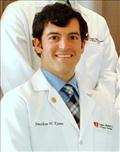
Jonathan Kanen
- Alumni
- United States
- 2015 PhD Psychology
- King's College
My curiosity about how people think and behave evolved into a desire to study the brain, which I explored as an undergraduate at Vassar College. Fascinated by the prospect of beginning to understand the neural basis of psychiatric disorders, I explored the field after graduation in the lab of Elizabeth Phelps at New York University. I obtained a compelling sense of how animal studies can be translated into human neuroscience to uncover the roots of mental illness, and became inspired to pursue a career as a psychiatrist and researcher. I have completed a substantial portion of my MD degree at Cooper Medical School of Rowan University, which I will finish after Cambridge, before pursuing specialization in psychiatry. During my PhD I will integrate pharmacological and neuroimaging methods to examine the influence of the neurochemical serotonin on emotional and behavioral flexibility. Serotonergic drugs are among the most common medications I will prescribe yet the precise role of serotonin in mental illness and its remediation is not completely understood. Complementing my MD training with PhD training at Cambridge will optimize my ability to increase communication between neuroscientists and psychiatrists. The Gates Cambridge Scholarship will make me a more impactful physician – helping patients beyond those who enter my office – by advancing our understanding of mental illness, and working to counter a formidable disease burden costly to individual sufferers and to society.
Previous Education
Vassar College
Cooper Medical School of Rowan University
Angeliki Kehagia
- Alumni
- Greece
- 2004 PhD Experimental Psychology
- Downing College

Angeliki Kehagia
- Alumni
- Greece
- 2004 PhD Experimental Psychology
- Downing College
My investigations are based on developing paradigms of executive function and decision making as indices of corticostriatal function, sensitive to neuropsychological deficits seen in neurodegenerative conditions and following brain damage. Techniques include fMRI and pharmacology of disease modifying as well as cognitive enhancing drugs, such as levodopa and atomoxetine. Current research interests lie in the domain of Parkinson’s disease and dementia, and developing neuropsychological and neuroimaging methods to improve early and accurate diagnosis, with a view to tailoring pharmacotherapy. In addition to my empirical work in neuroscience, I am interested in philosophical issues surrounding the concept of disorder in the cognitive, affective and psychiatric domains; the social implications of neuroscientific advances.








